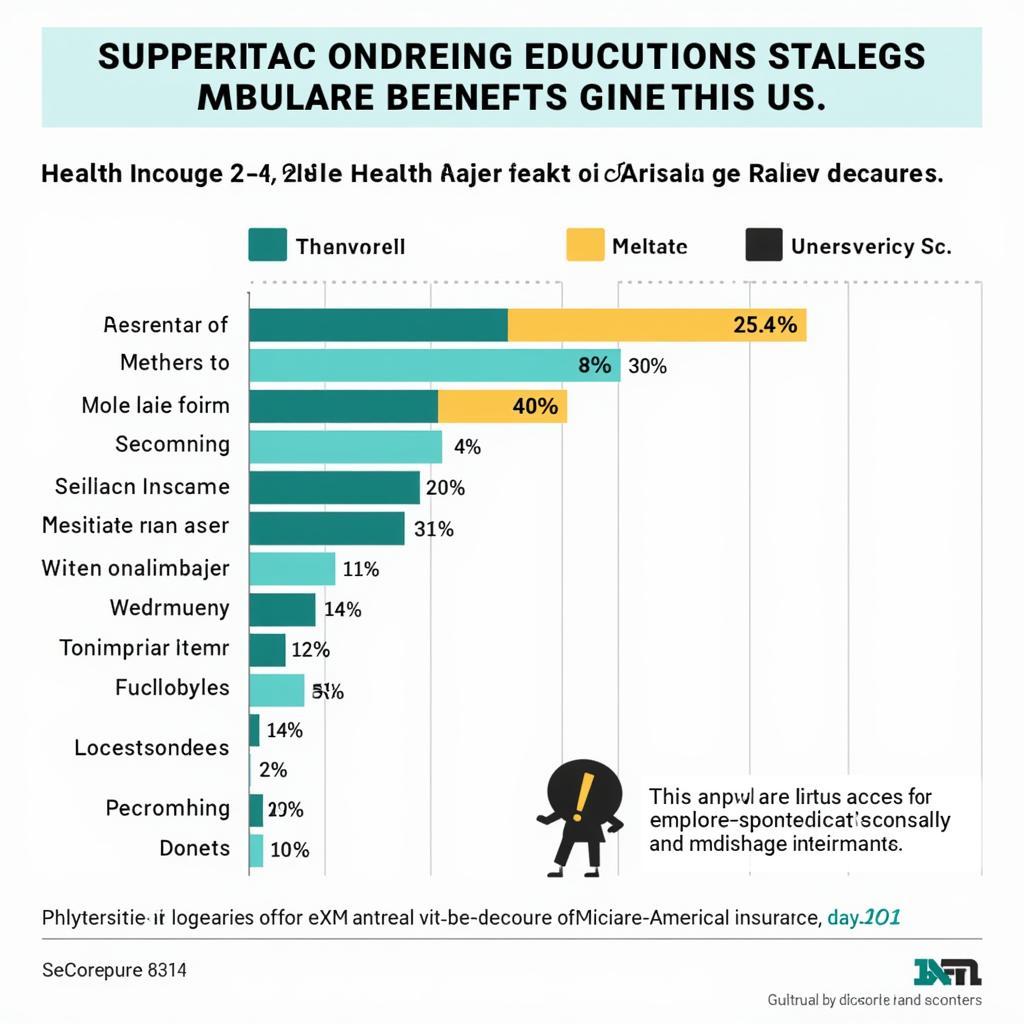African American Health Insurance Statistics: A Comprehensive Overview
African American Health Insurance Statistics reveal crucial insights into healthcare access and disparities within the United States. Understanding these statistics is essential for addressing health inequities and developing targeted interventions to improve health outcomes for this community. This article delves into the complexities of these statistics, exploring the factors contributing to disparities and potential solutions.
Unpacking the Numbers: A Look at African American Health Insurance Coverage
Several factors contribute to the complexities surrounding African American health insurance statistics. Historically, systemic racism and discrimination have created barriers to healthcare access, leading to lower rates of insurance coverage compared to other racial groups. Socioeconomic factors, such as income and education levels, also play a significant role. Many African Americans work in jobs that do not offer health insurance benefits, making it challenging to afford coverage.
African American disease statistics often highlight the impact of these disparities. Lack of access to preventative care and timely treatment can exacerbate existing health conditions, leading to poorer health outcomes. This underscores the importance of understanding and addressing the root causes of these disparities. You can find more information about specific diseases affecting the African American community at african american diseases.
 African American Health Insurance Coverage Disparities
African American Health Insurance Coverage Disparities
The Impact of the Affordable Care Act (ACA)
The Affordable Care Act (ACA) has had a positive impact on African American health insurance statistics, significantly reducing the uninsured rate within the community. By expanding Medicaid eligibility and creating marketplaces for affordable health plans, the ACA has provided more African Americans with access to coverage. However, disparities still persist, and further efforts are needed to ensure equitable access to quality healthcare.
What are the long-term effects of the ACA on African American health? Studies suggest that increased access to insurance leads to better health outcomes, including improved management of chronic conditions and increased utilization of preventative services.
Addressing the Remaining Gaps: Strategies for Improvement
Closing the remaining gaps in African American health insurance coverage requires a multi-faceted approach. Targeted outreach and enrollment assistance programs can help connect eligible individuals with affordable coverage options. Addressing socioeconomic factors, such as poverty and unemployment, is also crucial. Additionally, promoting cultural competency within the healthcare system can improve the quality of care and patient experience for African Americans. More information on related health statistics can be found at african american disease statistics.
 Strategies for Improving African American Healthcare Access
Strategies for Improving African American Healthcare Access
Beyond Insurance: Addressing Systemic Inequities
While health insurance is essential, it’s only one piece of the puzzle. Addressing systemic racism and implicit bias within the healthcare system is crucial for improving health outcomes for African Americans. This includes diversifying the healthcare workforce, promoting culturally competent care, and addressing social determinants of health. What is the African American circumcision rate? Learn more about health practices within the community at african american circumcision rate.
 African American Healthcare Equity: The Future
African American Healthcare Equity: The Future
Conclusion: Working Towards Health Equity for African Americans
African American health insurance statistics reveal the ongoing challenges and progress made in achieving health equity. Continued efforts to expand access to affordable coverage, address systemic inequities, and improve the quality of care are essential for ensuring that all African Americans have the opportunity to live healthy and fulfilling lives. Understanding and acting upon these statistics is critical for creating a more just and equitable healthcare system for all.
FAQ
- What are the main barriers to health insurance for African Americans?
- How has the ACA impacted African American health insurance rates?
- What are some strategies for increasing insurance coverage in this community?
- What are the social determinants of health that affect African Americans?
- How can cultural competency in healthcare improve health outcomes?
- What resources are available to help African Americans find affordable health insurance?
- What is the role of community health workers in improving access to care?
Scenarios:
- Scenario 1: A single mother working a minimum wage job is struggling to afford health insurance for herself and her children.
- Scenario 2: An elderly African American man is hesitant to seek medical care due to past experiences with discrimination in the healthcare system.
- Scenario 3: A young African American woman is diagnosed with a chronic illness and needs help navigating the healthcare system to find affordable treatment options.
Related Questions and Further Reading:
- What are the leading causes of death among African Americans?
- How can we address health disparities in underserved communities?
- What is the role of public health interventions in improving health equity?
Need Support? Contact us 24/7: Phone: +255768904061, Email: kaka.mag@gmail.com, or visit us at Mbarali DC Mawindi, Kangaga, Tanzania.


